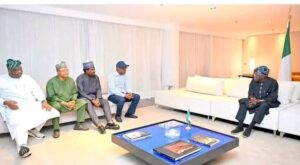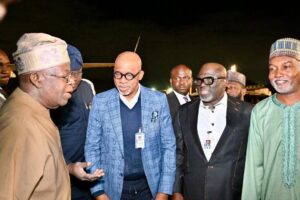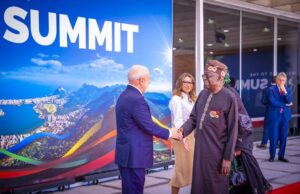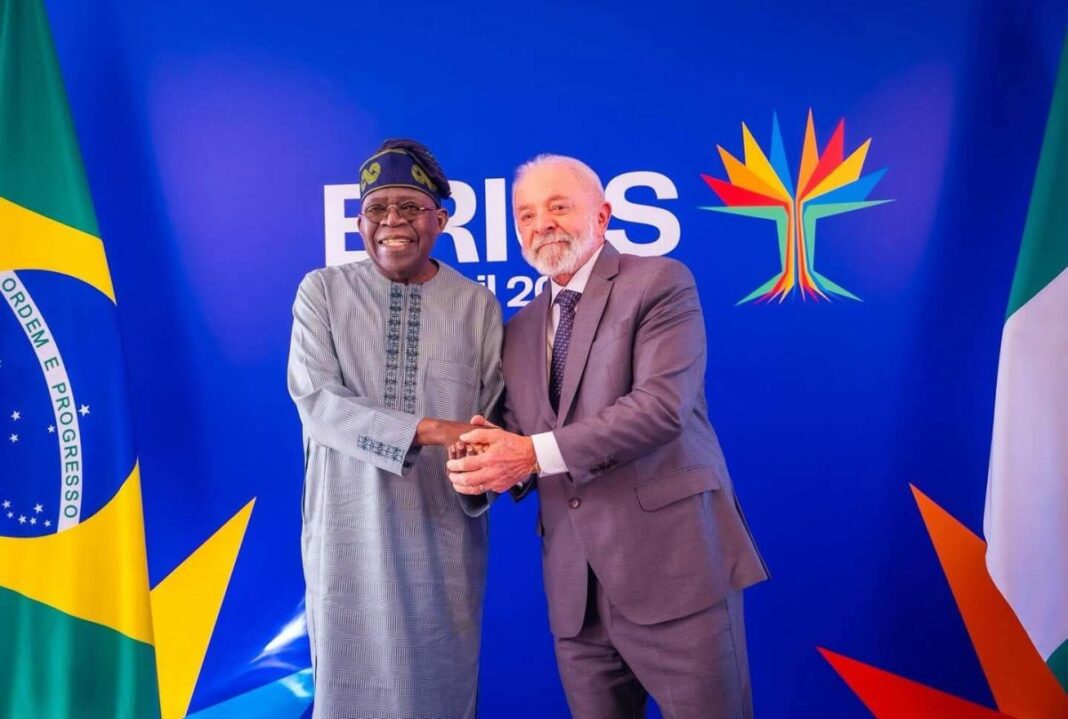Tinubu in Brazil: What This Mission Means — and How It Can Pay Off for Nigeria
Brasília/Rio de Janeiro — August 25, 2025.
President Bola Ahmed Tinubu arrived in Brazil for a state visit focused on hard deliverables: aviation links, agribusiness, energy, and wider economic cooperation with Latin America’s largest economy. The visit follows his July appearance at the BRICS Leaders’ Summit in Rio de Janeiro, where Nigeria engaged the bloc as an invited partner.

“Nigeria associates with what I have heard at BRICS… The next issues are financial restructuring and reevaluation of the global structure,” Tinubu said in Rio.

What’s on the table now
- Direct flights (BASA/MoU): Brazil and Nigeria are preparing agreements to unlock non-stop air links across the South Atlantic — a perennial barrier to trade, tourism, and FDI.
- Deals & MoUs: The Planalto Palace agenda features a tête-à-tête with President Lula, expanded talks, and MoU signings spanning agriculture, energy, security and culture; a Nigeria–Brazil Business Forum is scheduled to court investors.

- Strategic Dialogue momentum: In June 2025, Brazil’s Vice-President Geraldo Alckmin led a mission to Abuja that produced seven MoUs (defence, energy, livestock, audio-visual co-production, tourism, counternarcotics, and renewal of the dialogue mechanism). This visit is the follow-through.

Why Brazil matters (beyond optics)
Scale & symmetry: Brazil’s economy exported US$343.8bn of goods in 2023; Nigeria is Africa’s largest market. Tying the two directly can reduce cost and time to market for food, fertilizer, and manufactured inputs.

Real trade, not just talk: In 2024, Brazil→Nigeria exports were about US$977.5m; Nigeria→Brazil exports about US$880.4m. The direction is balanced — ripe for expansion if logistics improve (direct flights, port cooperation).

Food security & mechanization: Brazil is a top-tier agri powerhouse. Nigeria already has two big pipelines in play: a US$2.5bn JBS investment announced at the 2024 G20 and the US$1.1bn Green Imperative Programme targeting 10,000 tractors/50,000 implements for local assembly. Today’s mission is about converting MoUs to milestones.

The Rio link: BRICS as a platform
Brazil chairs BRICS 2025, hosting leaders in Rio (July 6–7). Nigeria used that platform to argue for fairer global finance and South–South supply chains, while Lula’s team flagged cooperation in energy transition, science/space observation, and innovation — areas this state visit can localize into projects.

Historical context: a relationship with deep roots
Brazil was the only Latin American country at Nigeria’s 1960 independence celebrations; Nigeria opened its embassy in 1966. Cultural ties run even deeper — the Aguda (Brazilian returnee) community shaped Lagos Island’s Popo Aguda quarter, a reminder that Brazil–Nigeria links are centuries old.

Politics and optics
Nigeria’s presidency says the delegation includes ministers, agencies and private-sector leaders; it did not publish a full list by name at press time. (Photos and social updates have highlighted senior National Assembly figures and governors offering political cover.) The real test, however, isn’t who’s in the room — it’s what gets signed and how fast it lands at home.

What success looks like (measurable outcomes)
1. Aviation: Signed BASA/MoU and a defined route launch plan (airlines, start dates, slots).
2. Agribusiness: Time-bound projects under the JBS and GIP umbrellas — hectares under irrigation, tractor assembly output, input prices tracked quarterly.
3. Energy & transition: Joint ventures in biofuels, gas monetization, and grid technologies with Brazilian financing/know-how (BNDES-style instruments).
4. Creative/AV & tourism: Activation of the audio-visual MoU and the new air link to push festivals, film co-productions, and two-way tourism.

Risks to watch (and how to blunt them)
- Airline economics: Without traffic rights + marketing support, direct flights can stall. Bake in fifth-freedom options, code-shares, and minimum-seat commitments in the BASA.
- FX & payments: Use local-currency trade windows and export-credit tools to de-risk deals while Nigeria works through FX reforms. (This echoes BRICS-era conversations about alternative payment rails.)

- MoU fatigue: Require implementation scorecards (quarterly) co-signed by both governments and private counterparts.
Conclusion.
This isn’t just another photo-op. Suppose the direct-flights deal is inked and agri/energy MoUs are tied to execution metrics. In that case, Tinubu’s Brazil mission can lower Nigeria’s trade costs, expand investment pipelines, and deliver visible wins by year-end. The pieces — from BRICS-level engagement in Rio to state-visit bargaining in Brasília — are finally aligned. Now it’s about closing and delivering.

Dr. G. Fraser. MFR
The National Patriots.
Headlinenews.news Special Publication.




